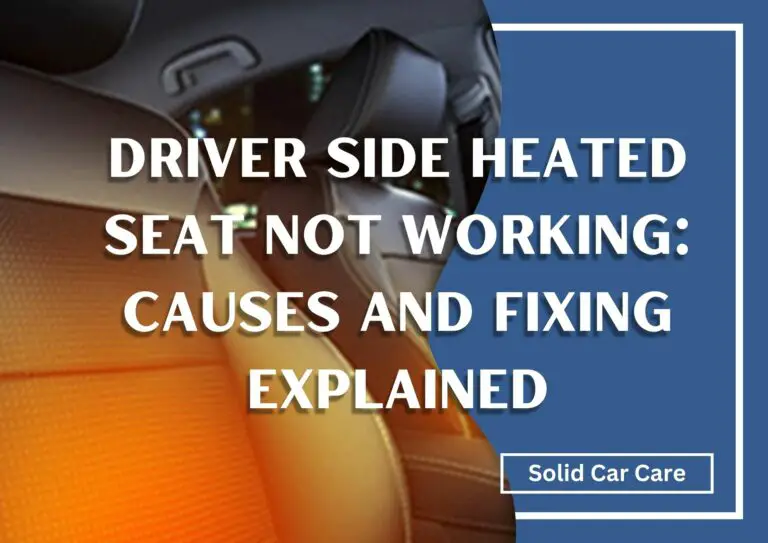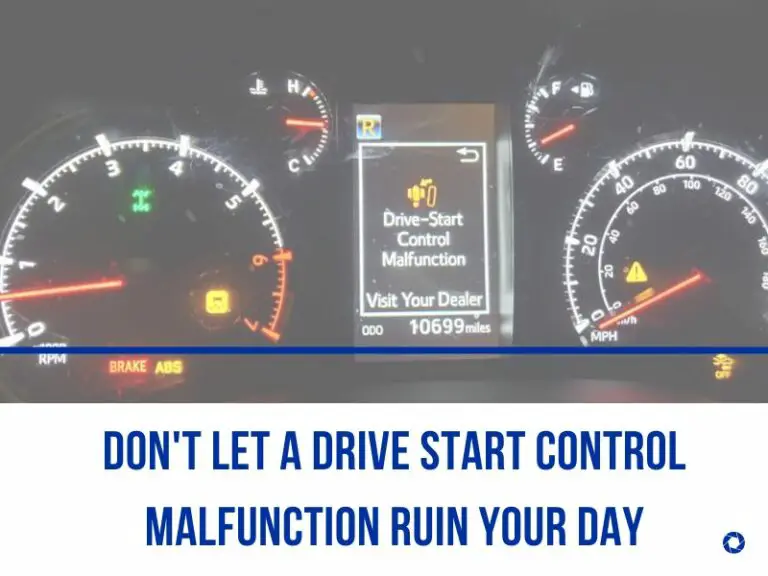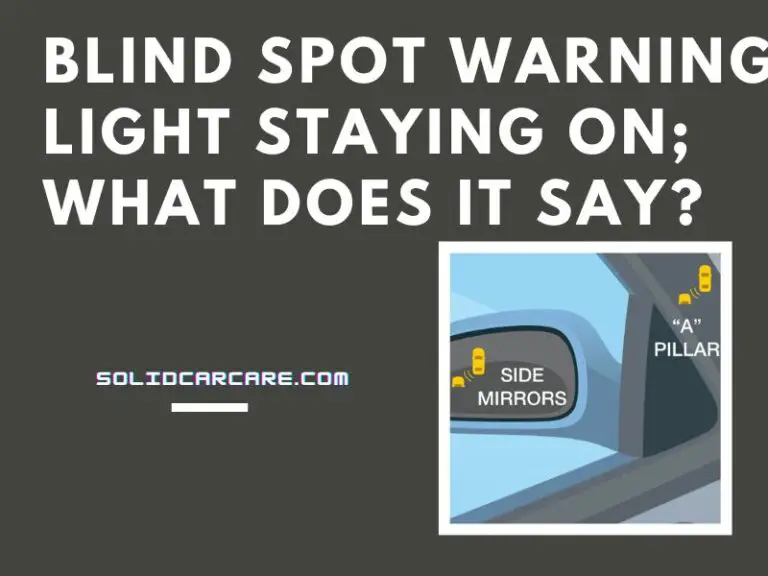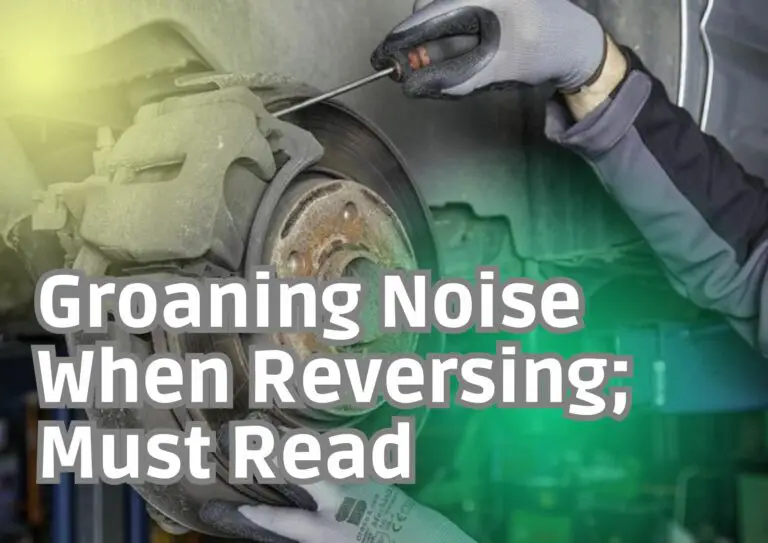Whining Noise When Releasing Clutch: Causes, Symptoms, Diagnosis, and Fix
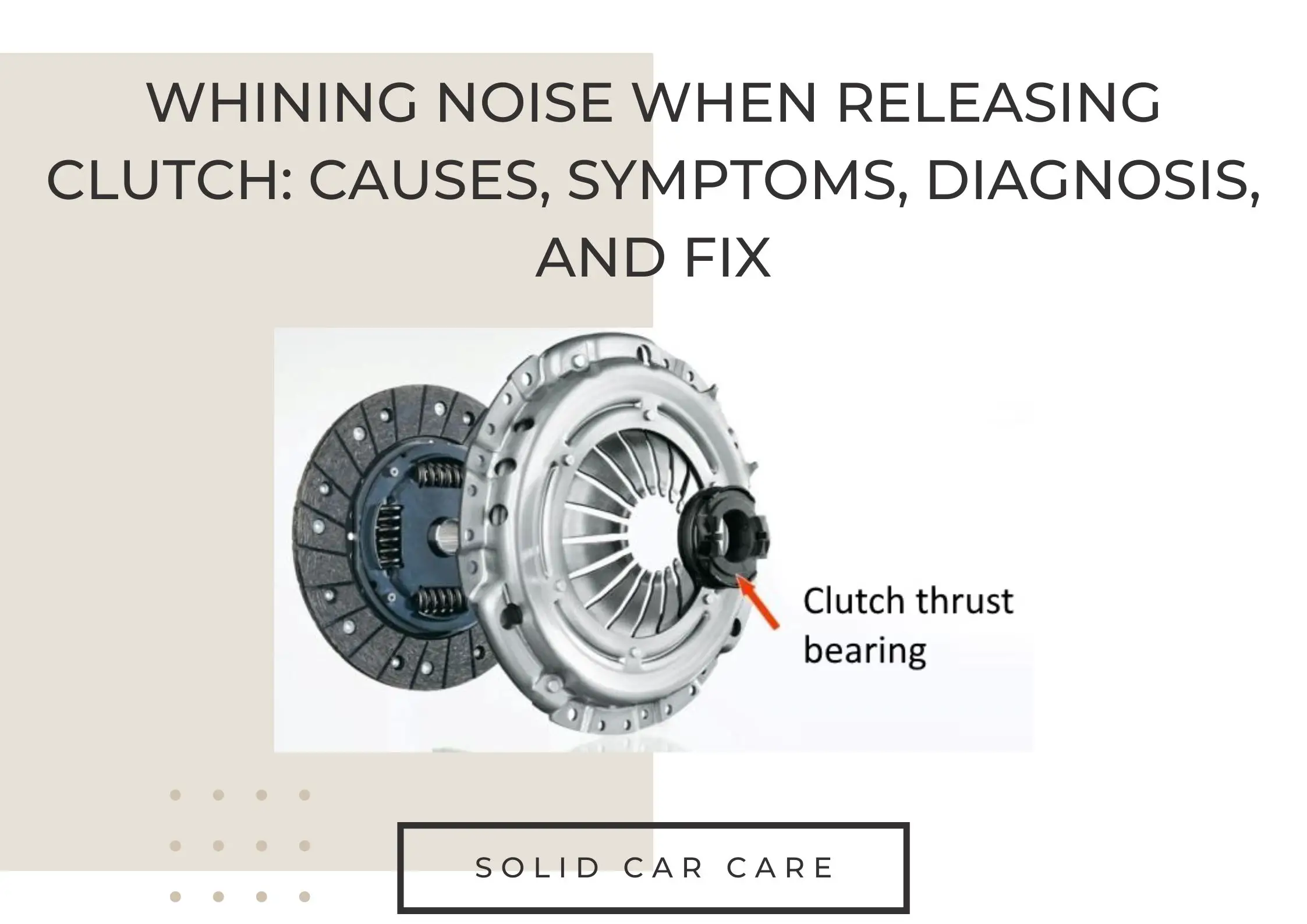
If you hear a whining noise when you release the clutch pedal, it could be a sign of a problem with your vehicle’s clutch system. Ignoring this issue can lead to more serious problems and result in costly repairs.
In this article, we will discuss the causes, symptoms, diagnosis, and fixes of a whining noise when releasing the clutch.
Table of Contents
- Causes of Whining Noise When Releasing Clutch
- Symptoms of Whining Noise When Releasing Clutch
- Diagnosing the Issue
- How do I check if my clutch is OK?
Causes of Whining Noise When Releasing Clutch
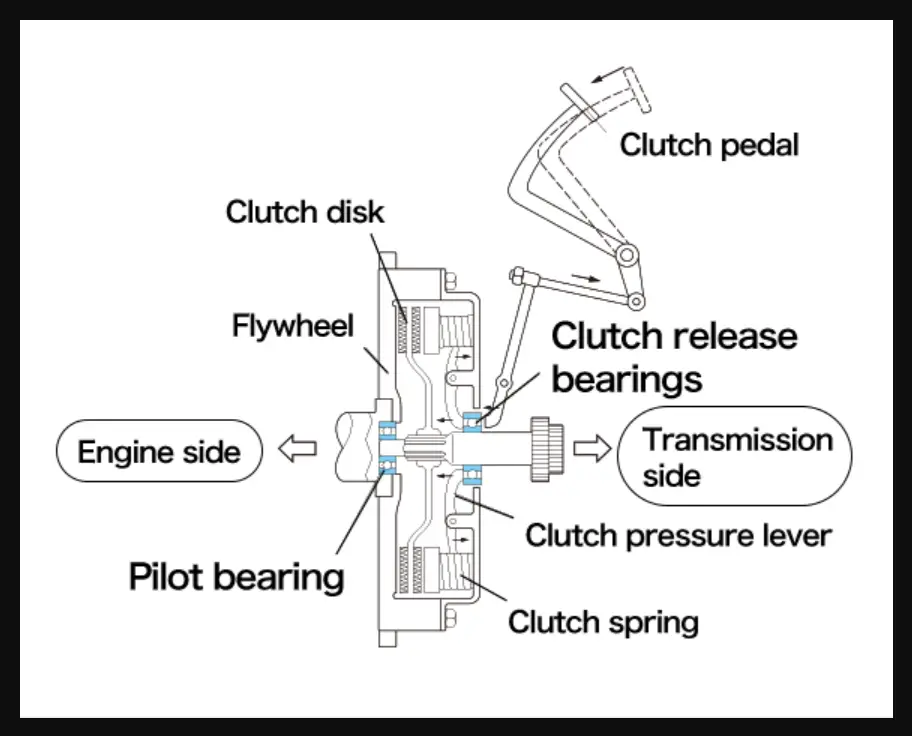
There are several reasons why your vehicle may make a whining noise when you release the clutch. Some of the most common causes include:
1. Worn Clutch Release Bearing
The clutch release bearing is a component that helps to disengage the clutch when you press the pedal. Over time, this bearing can wear out and cause a whining noise when you release the clutch.
2. Damaged Input Shaft Bearing
The input shaft bearing supports the transmission input shaft. If it is damaged, it can cause a whining noise when the clutch is released.
3. Low Transmission Fluid
Low transmission fluid can cause the gears in the transmission to grind, resulting in a whining noise when the clutch is released.
4. Worn Clutch Disc
The clutch disc is a component that engages and disengages the engine from the transmission. If it is worn out, it can cause a whining noise when the clutch is released.
5. Misaligned Transmission
If the transmission is misaligned, it can cause the gears to mesh improperly, resulting in a whining noise when the clutch is released.
6. Faulty Pilot Bearing
The pilot bearing supports the transmission input shaft and can wear out over time. If it is faulty, it can cause a whining noise when the clutch is released.
7. Worn Flywheel
The flywheel is a component that connects the engine to the clutch. If it is worn out, it can cause a whining noise when the clutch is released.
Car Making Whining Noise When Parked; Causes Fixing And Preventing
Solid Car Care
Symptoms of Whining Noise When Releasing Clutch
Aside from the whining noise itself, there are a few other symptoms you may experience if your vehicle has a clutch problem. These can include:
Difficulty Shifting Gears
If you have difficulty shifting gears or notice that the gears are slipping, it could be a sign that your clutch is worn out.
Clutch Slippage
Clutch slippage occurs when the clutch disc fails to engage properly. This can cause the engine to rev higher than it should, and you may notice a burning smell.
Burning Smell
A burning smell can be an indication of several different problems, but if you notice it while driving, it could be a sign that your clutch is slipping.
Diagnosing the Issue
To diagnose the cause of the whining noise, you will need to inspect several components of the clutch system. Here are the steps you can take:
- Inspect the clutch release bearing: If the bearing is worn out, it will need to be replaced.
- Check the input shaft bearing: If it is damaged, it will need to be replaced.
- Check the transmission fluid level: If it is low, add more fluid.
- Inspect the clutch disc: If it is worn out, it will need to be replaced.
- Check the alignment of the transmission: If it is misaligned, it will need to be realigned.
- Inspect the pilot bearing: If it is faulty, it will need to be replaced.
- Check the flywheel: If it is worn out, it will need to be replaced.
How do I check if my clutch is OK?
To check if your clutch is in good condition, follow these steps:
- Check the clutch pedal
Start by checking the resistance and feel of the clutch pedal. The pedal should feel firm and have some resistance when pressed. If the pedal feels soft, spongy, or too easy to press, it could indicate a problem with the clutch system.
- Check for slipping
Take your vehicle to an open road and accelerate in a higher gear. If the engine RPMs increase without a corresponding increase in vehicle speed, it could be a sign of a slipping clutch.
- Listen for noises
Listen for any unusual noises when engaging or disengaging the clutch, such as grinding or rattling sounds.
- Check the engagement point
The clutch engagement point is the point at which the clutch pedal starts to engage the clutch. If the engagement point is too high or too low, it could indicate a problem with the clutch system.
- Check for vibrations
When driving at higher speeds, pay attention to any vibrations or shaking in the vehicle. This could be a sign of a worn-out clutch.
If you notice any of these issues or are experiencing difficulty shifting gears, it’s best to take your vehicle to a trusted mechanic for a more thorough inspection. A professional mechanic can diagnose the problem and recommend the necessary repairs to keep your vehicle running smoothly.
Solid Car Care
Fixing the Issue
Once you have identified the cause of the whining noise, you will need to fix the issue. Here are the steps you can take:
- Replace the clutch release bearing: This will require removing the transmission and replacing the bearing.
- Replace the input shaft bearing: This will also require removing the transmission and replacing the bearing.
- Add more transmission fluid: This can be done by locating the transmission fluid dipstick and adding more fluid as needed.
- Replace the clutch disc: This will require removing the transmission and replacing the worn-out clutch disc.
- Realign the transmission: This can be done by loosening the transmission mounts and adjusting the position of the transmission.
- Replace the pilot bearing: This will require removing the transmission and replacing the bearing.
- Replace the flywheel: This will require removing the transmission and replacing the worn-out flywheel.
How much time and cost will it take to fix?
If the cause of the noise is a worn clutch release bearing, the repair will likely take several hours and cost between $500 and $800, including parts and labor. On the other hand, if the cause is low transmission fluid, simply adding more fluid can be done quickly and inexpensively.
Conclusion
If you hear a whining noise when you release the clutch, it could be a sign of a problem with your vehicle’s clutch system. Ignoring this issue can lead to more serious problems and result in costly repairs. By identifying the cause of the whining noise, you can take the necessary steps to fix the issue and keep your vehicle running smoothly. If you are not comfortable with diagnosing or fixing the problem yourself, it is best to take your vehicle to a trusted mechanic for repair.


